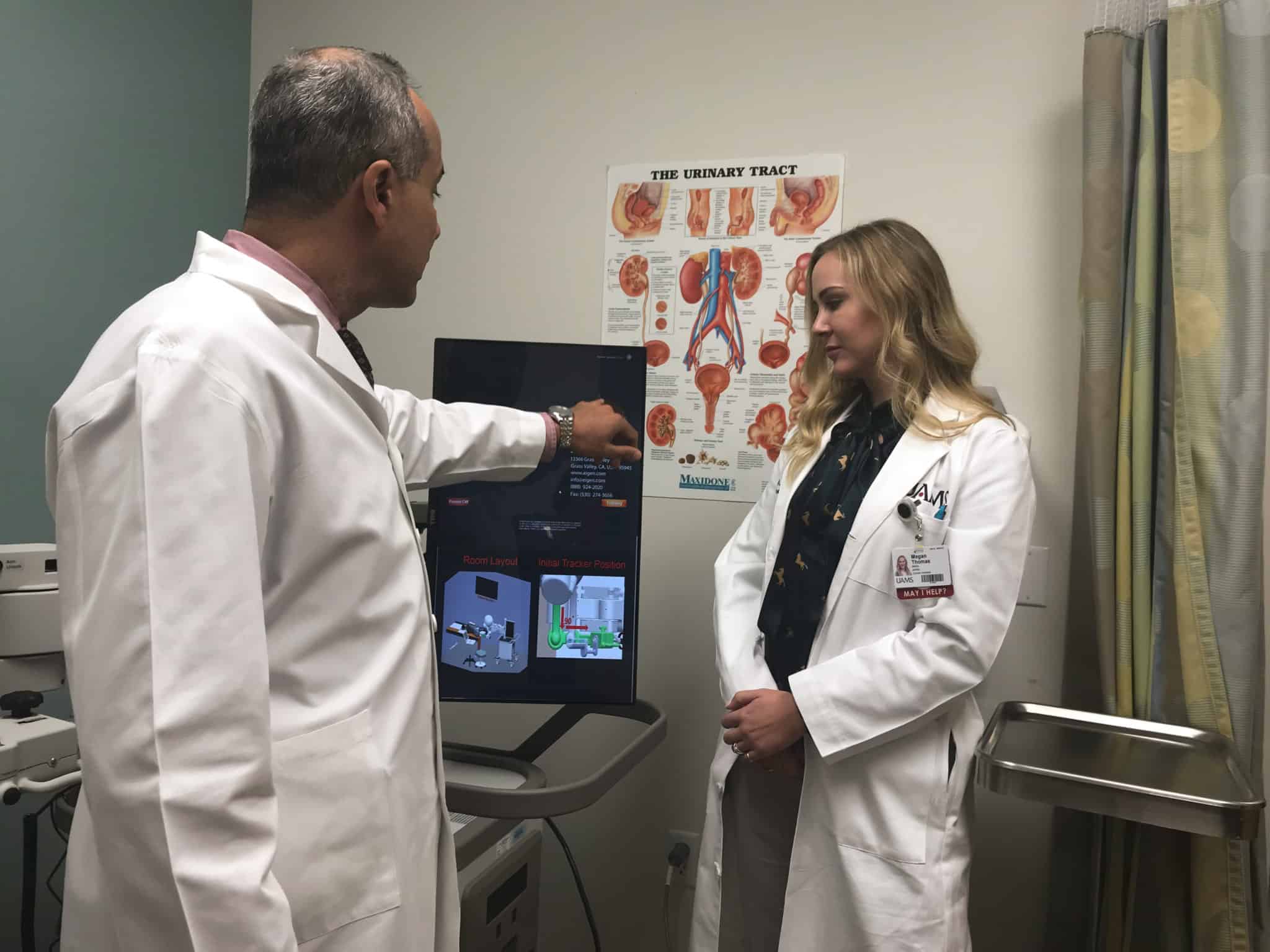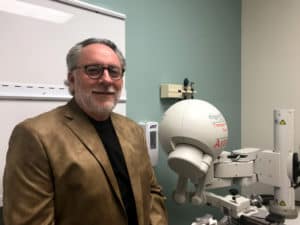View Larger Image

Mohamed Kamel, M.D. and Megan Thomas, A.P.R.N discuss imaging results.
Targeted Prostate Biopsy Yields More Accurate Results
| The Urology Clinic at UAMS is now offering a targeted prostate biopsy that can detect cancer that conventional biopsy may miss.
Mohamed Kamel, M.D., a urologic oncologist and associate professor of urology at UAMS, says this technology, which is only a few years old, allows doctors to pinpoint areas more precisely, leading to more accurate images that will allow for a clearer diagnosis.
Stephen Hobbs is one of Kamel’s patients. The 63-year-old business owner has been seeing a urologist at least twice a year for 13 years. He says this new targeted approach UAMS offers gives him a greater peace of mind.
“In the past, the sampling has been randomized,” Hobbs said. “My concerns have always been that a biopsy may miss something.”
Hobbs’ prostate specific antigen (PSA) levels are much higher than normal. PSA is a protein produced by the prostate gland, and elevated amounts is often an indicator that a patient may have prostate cancer. Hobbs says this is why he stays on top of his visits to Kamel’s clinic.
“I may be diagnosed with prostate cancer one day,” Hobbs said. “But the earlier you catch it, the better your odds. So as long as I’m keeping my appointments and now with this targeted biopsy, I don’t worry about prostate cancer.”
Kamel says the targeted biopsy also keeps physicians from subjecting patients to unnecessary procedures. Elevated PSA levels can also be the result of inflammation, infection or aging.
“Targeted biopsy can reduce the number of biopsies we do for our patients,” Kamel said. “It shows us the suspicious areas. If the biopsy shows it is positive for cancer, we offer surgery or radiation. If it is negative, we can tell the patients with confidence that he does not have aggressive cancer in his prostate.”
Kamel works with a team of clinicians including Megan Thomas, A.P.R.N., Brenda Green, R.N. and medical assistant Stephanie Suggs. Together the health care professionals consult with patients in helping them make informed decisions about their biopsies and treatment plans.
